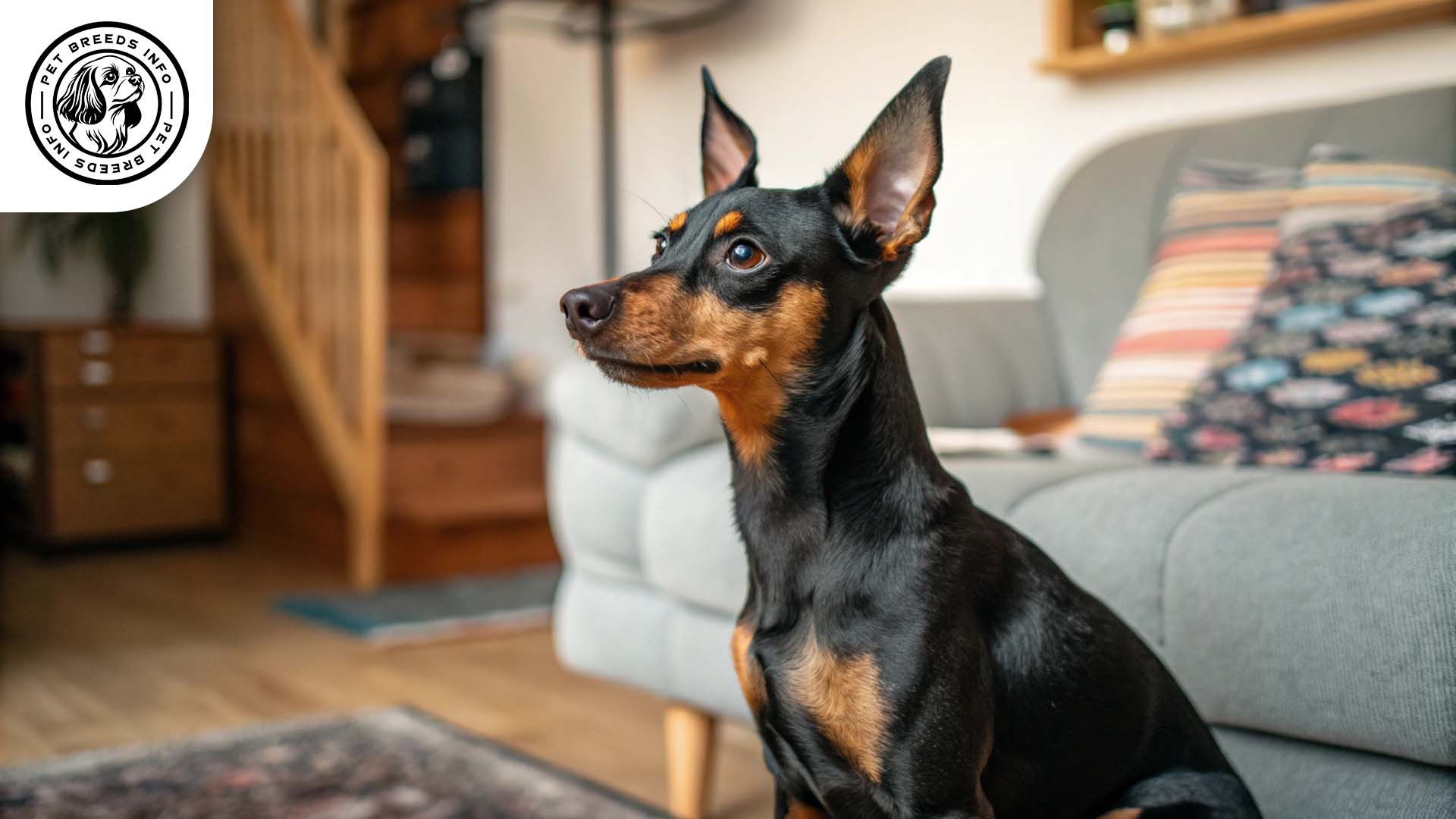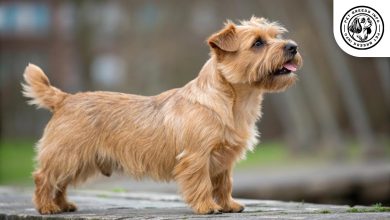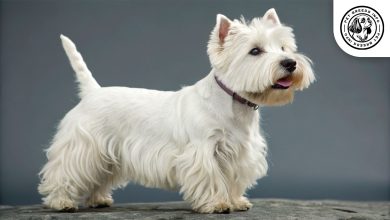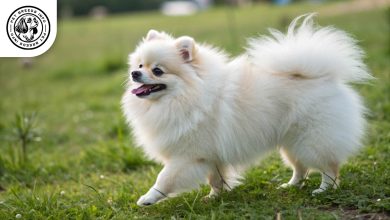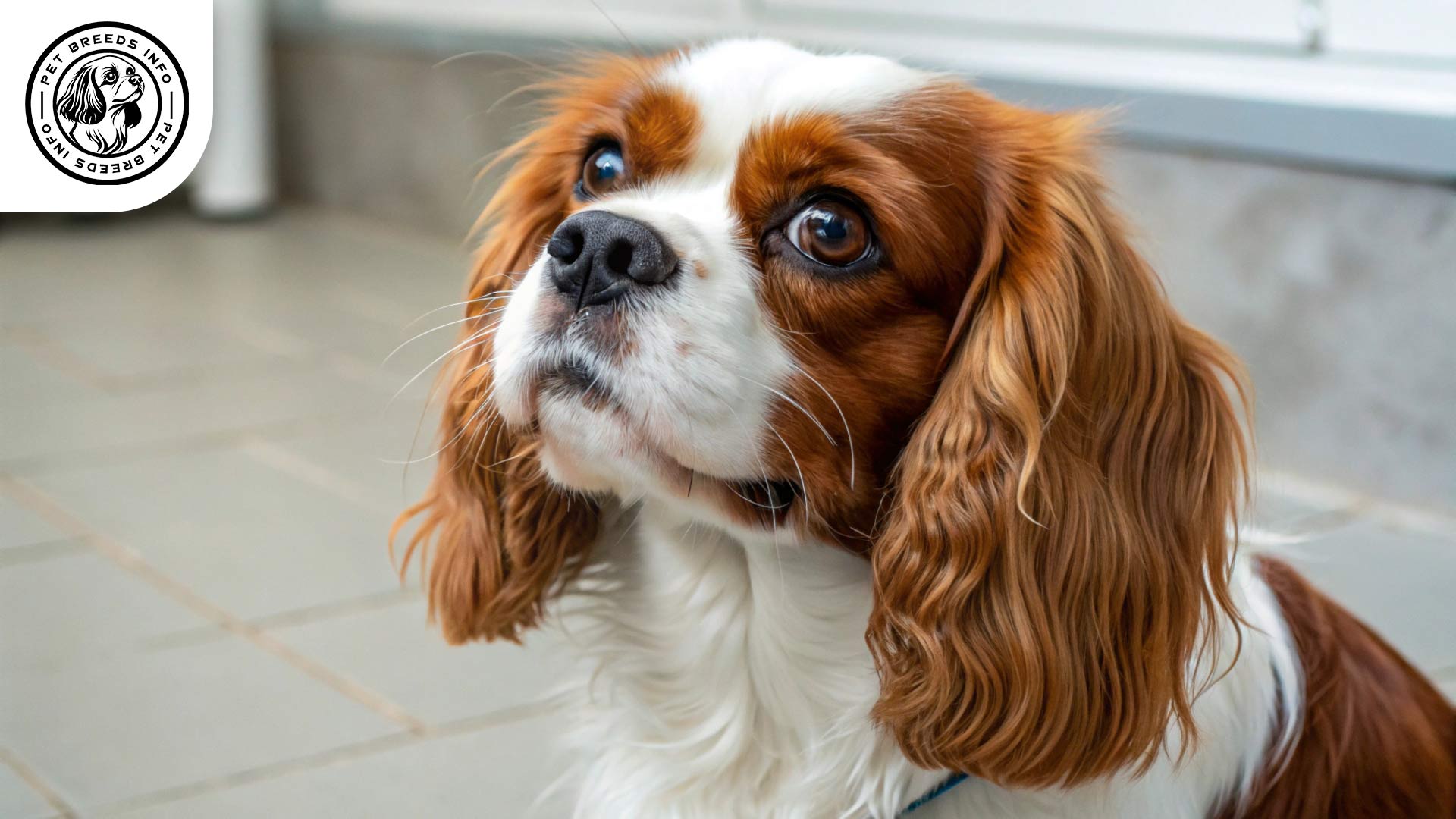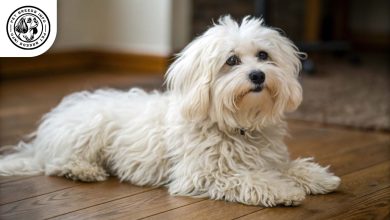Miniature Pinscher Dog Breed : Size, Price & Personality
General Introduction of the Breed
The Miniature Pinscher, also known as Min Pin, is a small but energetic breed that originated in Germany. It is sometimes referred to as the “King of Toys” due to its confident and spirited nature. Although it resembles a small Doberman Pinscher, it is a distinct breed with its own lineage. The Miniature Pinscher was originally bred to hunt rats in homes and stables, and its development can be traced back several centuries.
Table of Contents
| Weight | 8 – 12 lbs (3.6 – 5.4 kg) |
| Lifespan | 12 – 16 years |
| Diet | High-quality dry, wet, or raw food; portion-controlled meals |
| Care | Daily exercise, minimal grooming, warm clothing in cold weather |
| Health | Prone to patellar luxation, heart disease, and retinal atrophy |
| Color | Red, black & rust, chocolate & rust, stag red |
| Nature | Intelligent, energetic, loyal, and alert |
| Price | $1,000 – $2,500 |
Physical Characteristics
The Miniature Pinscher is a compact, well-proportioned dog with a sleek and athletic build. Males typically stand between 10 to 12.5 inches in height and weigh around 8 to 12 pounds, while females are similar in size.
The breed has a short, smooth coat that requires minimal grooming. It comes in various colors, including red, black and rust, chocolate and rust, and stag red.
Its eyes are dark, round, and bright, conveying a keen and alert expression. The ears can be naturally erect, cropped, or flopped, depending on the owner’s preference. The tail is typically docked in some countries, although it is left natural in others.
A distinctive feature of the Miniature Pinscher is its high-stepping gait, which gives it an elegant and proud posture.
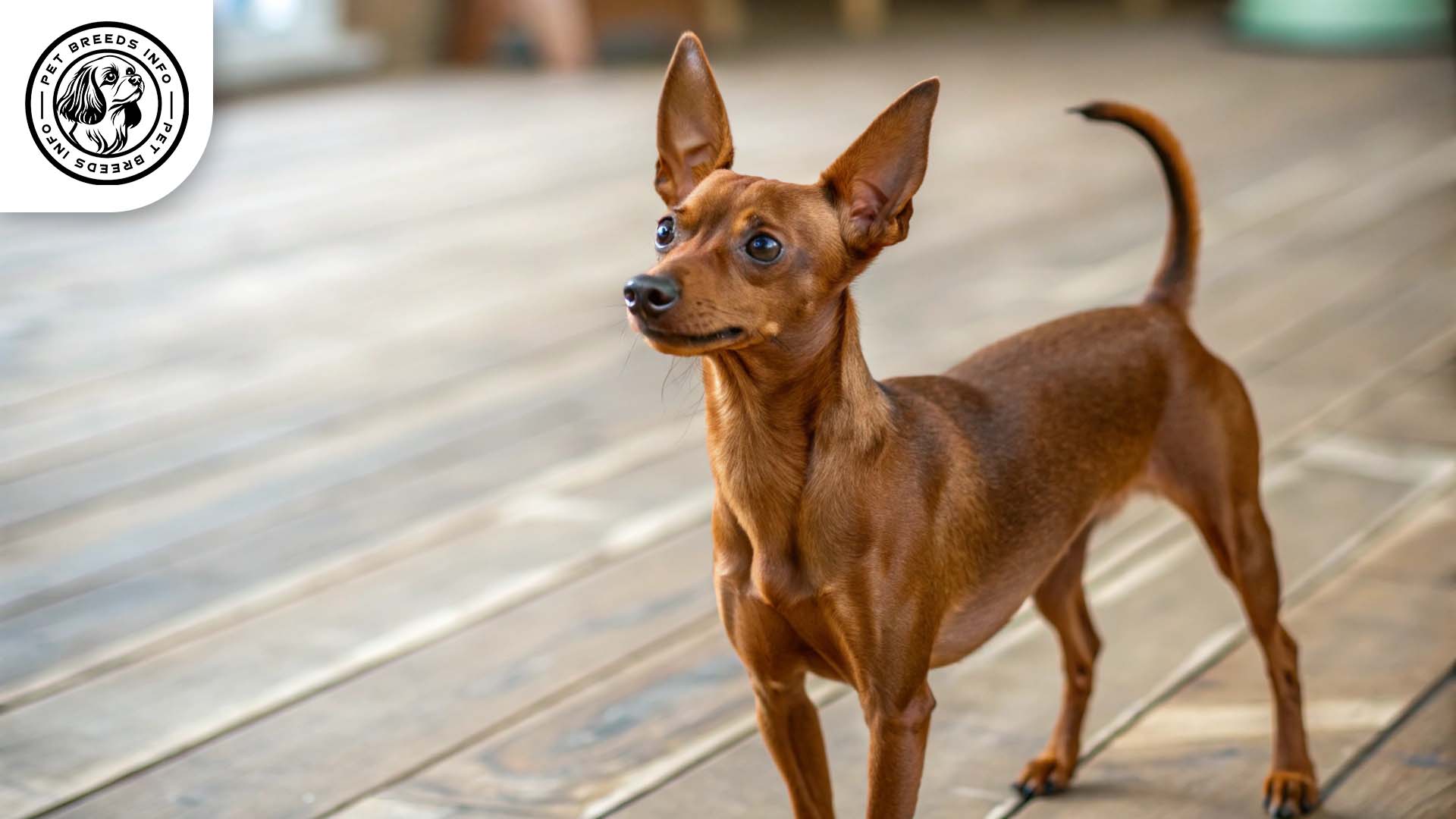
Personality and Temperament
The Miniature Pinscher is highly intelligent and quick to learn, but it can also be independent and stubborn. Its high energy levels require regular mental and physical stimulation.
This breed is extremely loyal and forms strong bonds with its owners. It thrives with companionship and does not like to be left alone for long periods.
Min Pins are naturally alert and make excellent watchdogs. They may be reserved around strangers but are affectionate with their family. Their interaction with other pets and children should be supervised, as their playful nature can sometimes be too rough for smaller animals.
Due to their keen instincts and playful disposition, they enjoy interactive toys and activities that challenge their intelligence.
Read More: Miniature Bull Terrier Dog
Care and Maintenance Requirements
The Miniature Pinscher requires daily exercise, including brisk walks and playtime to stay fit and mentally engaged.
It can adapt well to apartment living as long as it receives enough physical and mental stimulation.
The breed sheds minimally, and grooming is simple. Regular brushing helps maintain the coat’s shine. Bathe only when necessary, and keep nails trimmed and ears clean.
Min Pins are sensitive to cold weather due to their short coat and should be provided with warm clothing during colder months.
Diet and Nutrition
A balanced diet consisting of high-quality dry kibble, wet food, or a raw diet is recommended for the Miniature Pinscher.
Owners should avoid feeding their dogs chocolate, grapes, onions, and foods with artificial additives.
Portion sizes should be controlled to prevent obesity, and adult dogs typically require two meals a day.
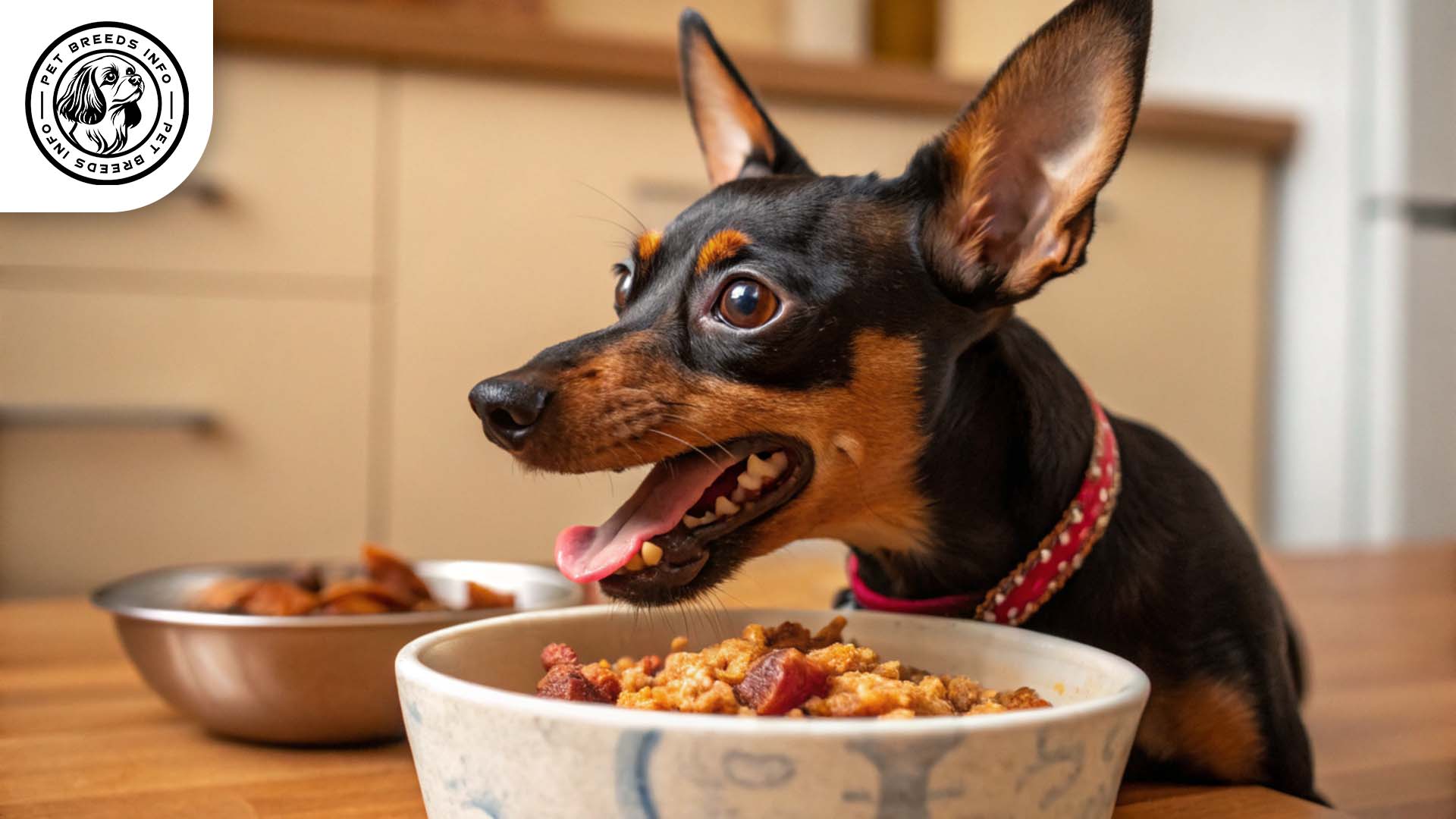
Health and Common Medical Issues
Miniature Pinschers are generally healthy, but they are prone to some genetic conditions, including patellar luxation, heart disease, and progressive retinal atrophy.
They may also experience issues like Legg-Calvé-Perthes disease and obesity if not properly managed.
The average lifespan of a Miniature Pinscher is between 12 to 16 years with proper care.
Routine vaccinations, regular vet checkups, and dental care are essential for maintaining overall health.
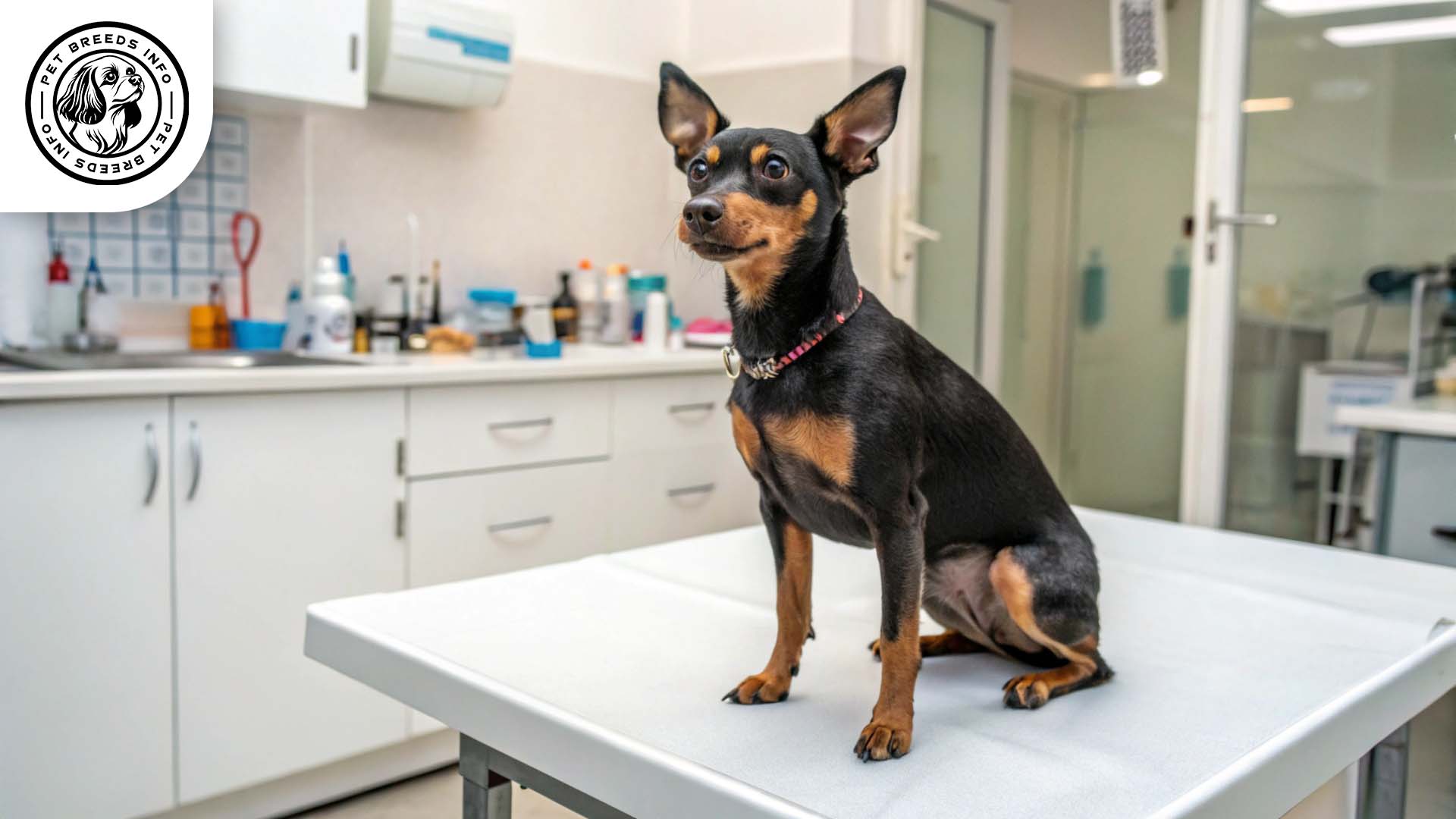
Training and Behavior Management
The Miniature Pinscher is intelligent but can be stubborn, making early training and socialization essential.
Positive reinforcement techniques, such as treats and praise, work best when training this breed.
Basic obedience commands should be taught from an early age, as they can develop small dog syndrome if not properly guided.
Consistency is key, as this breed has a strong will and may try to challenge its owner’s authority.
Read More: Mastiff Dog
Interaction with Other Animals and Humans
Miniature Pinschers can be good with older children who understand how to handle small dogs properly.
They may be cautious around other dogs and pets, so early socialization is highly recommended.
This breed is well-suited for both individuals and families but requires dedicated time for training and exercise.
Although independent, they develop strong attachments to their owners and prefer being near them as much as possible.
Price and Availability
The price of a Miniature Pinscher varies based on lineage, breeder reputation, and location. Typically, they range between $1,000 and $2,500 from reputable breeders.
It is important to source the dog from ethical breeders who conduct health screenings. Adoption from rescue centers is also a great option for those looking to provide a home to a Min Pin in need.
Conclusion and Final Thoughts
The Miniature Pinscher is a bold, intelligent, and energetic breed that thrives in an active and devoted household.
It is well-suited for owners who can provide proper training, companionship, and daily exercise.
Potential owners should consider the breed’s high energy levels, need for companionship, and strong-willed nature before bringing one home.
With the right care, training, and love, the Miniature Pinscher can serve as a loyal and entertaining companion for many years.
Read More: Manchester Terrier
FAQ
Are Miniature Pinschers good family pets?
Yes, Miniature Pinschers are affectionate and loyal. They do well with families but need supervision around small children due to their energetic nature.
Do Miniature Pinschers require a lot of exercise?
Yes, they are high-energy dogs that need daily walks, playtime, and mental stimulation to stay happy and healthy.
Are Miniature Pinschers easy to train?
They are intelligent but can be stubborn. Consistent, positive reinforcement training from an early age is key to success.
Can Miniature Pinschers live in apartments?
Yes, they adapt well to apartment living but require daily exercise and engagement to prevent boredom and destructive behavior.
What are common health concerns in Miniature Pinschers?
They are generally healthy but may suffer from patellar luxation, heart disease, and progressive retinal atrophy. Regular vet check-ups help prevent issues.
